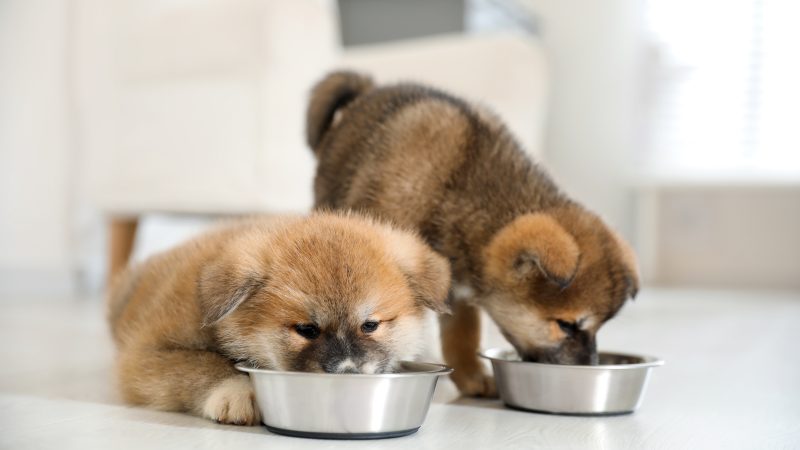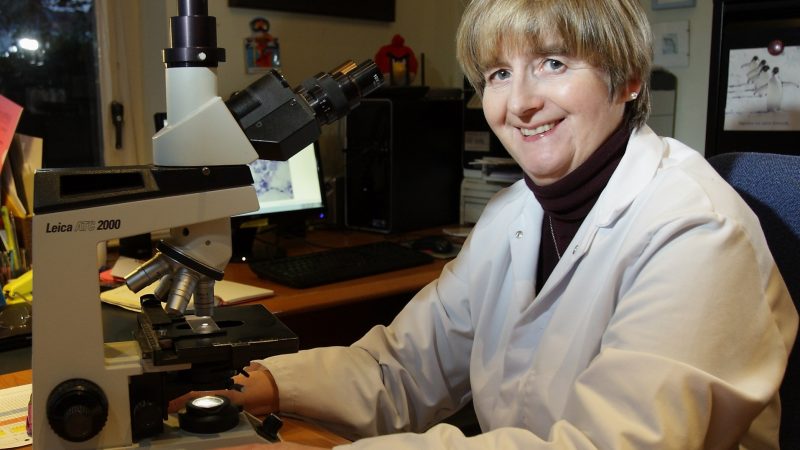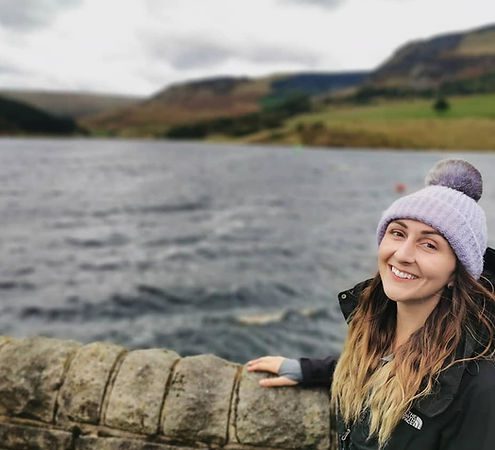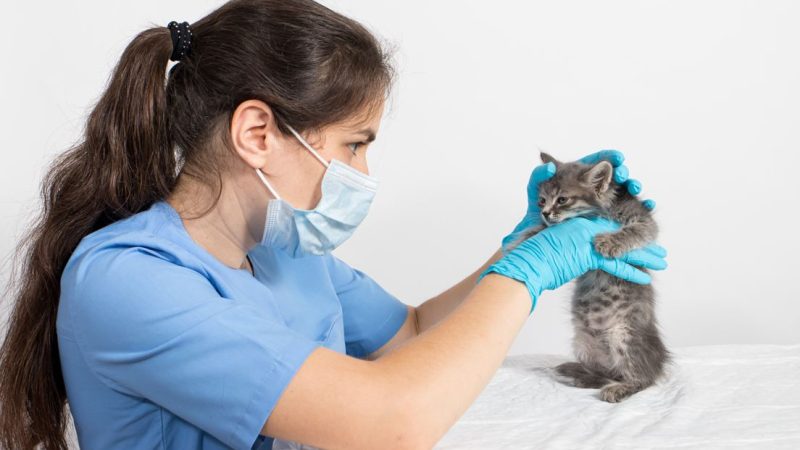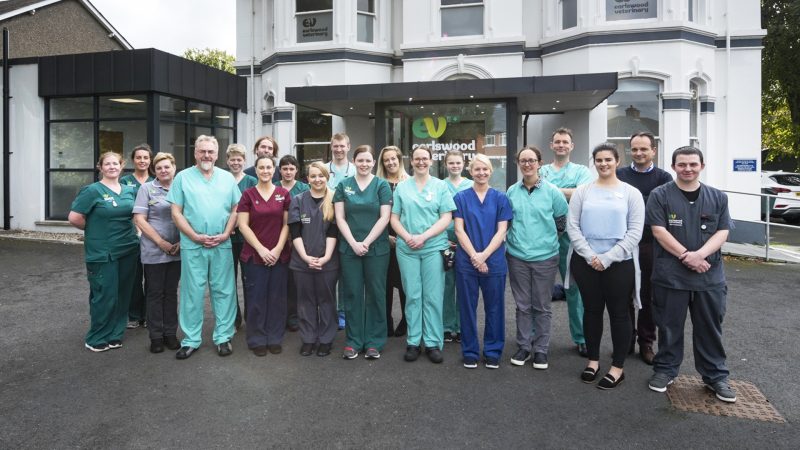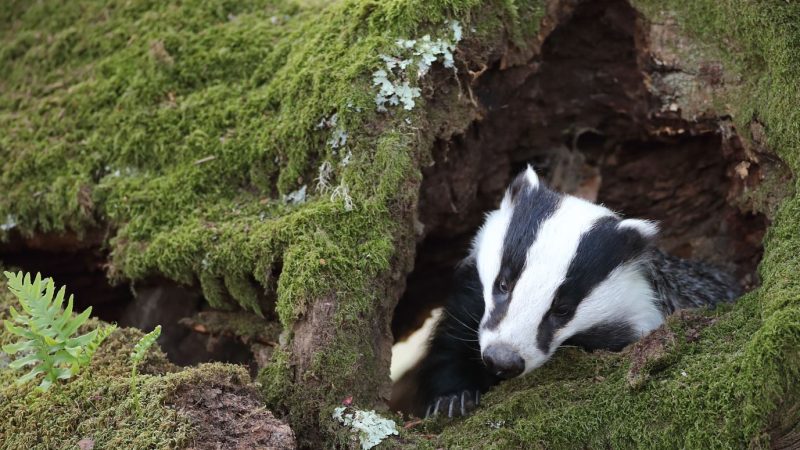Profession finds its feet in a crisis
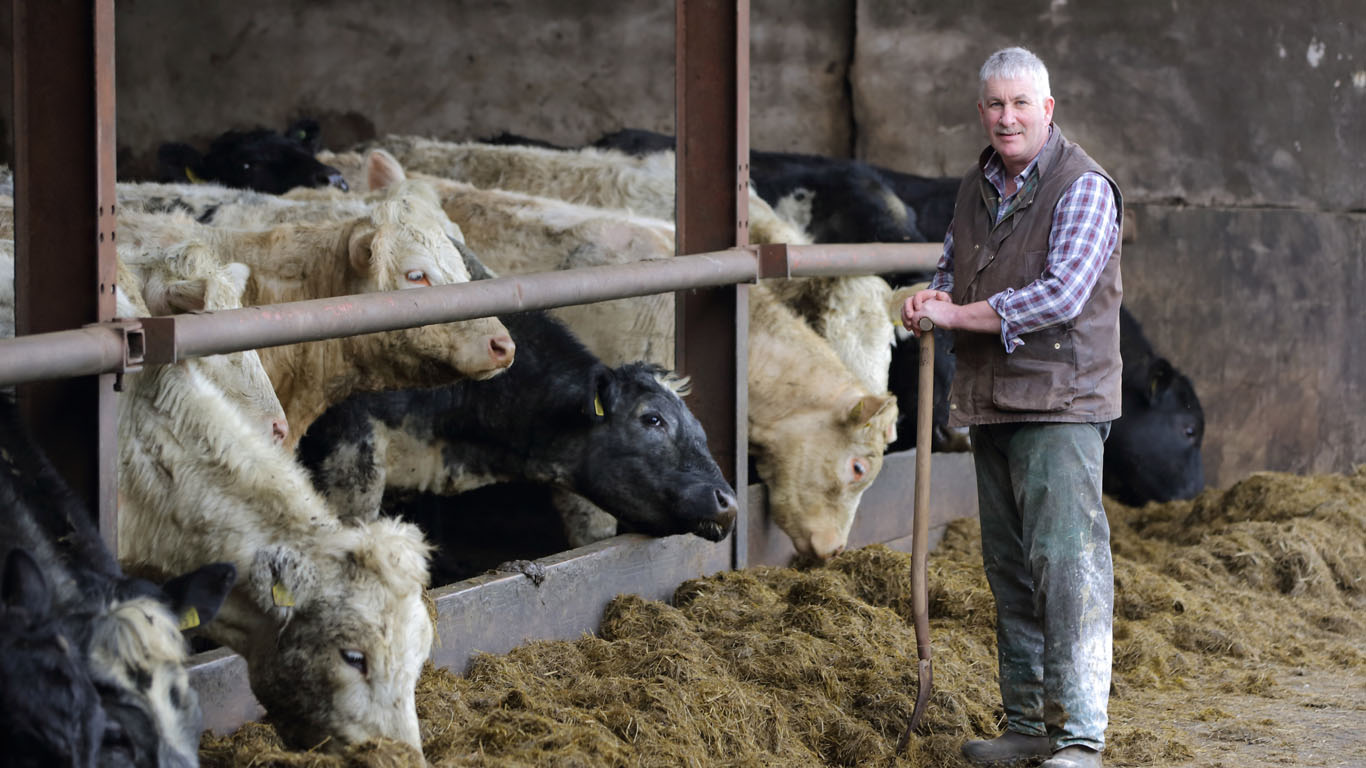
The coronavirus pandemic continues to make its presence felt across the profession in Northern Ireland, but vets and their clients are adapting to the new normal and finding a way through these challenging times…
UFU says farm visits ‘extremely difficult’
Victor Chestnutt, president of the Ulster Farmers’ Union, says local farmers had many challenges to overcome in order to keep their businesses running during lockdown, not least how best to facilitate vital veterinary visits to their animals.
‘The normal way in which vet visits were carried out had to be altered completely to keep both the farmer and the vet safe while attending to the animal in need,’ Mr Chestnutt told NIVT. ‘It’s been extremely difficult to have a vet on farm and maintain the two-metre rule due to the nature of the tasks that needed to be done.
‘It puts an emphasis on the importance of having proper handling facilities which allow a vet to examine and treat animals with minimal farmer assistance. Otherwise, the logistics of trying to complete a surgical procedure on a cow with no assistance would be extremely difficult and unsafe.’
Mr Chestnutt has urged all farmers to abide by the guidelines issued by government and make all necessary preparations before inviting a vet onto their property to look at an animal:
‘Many farmers remain concerned about the risk of Covid-19 transmission, particularly those who are in the high-risk category or have vulnerable people within their household. Therefore, it is vital that both parties continue to follow the Covid-19 guidelines so that vets can do the work that is required in a manner that keeps everyone safe while helping to maintain animal heath and prevent any further disruption to farm businesses,’ added the president
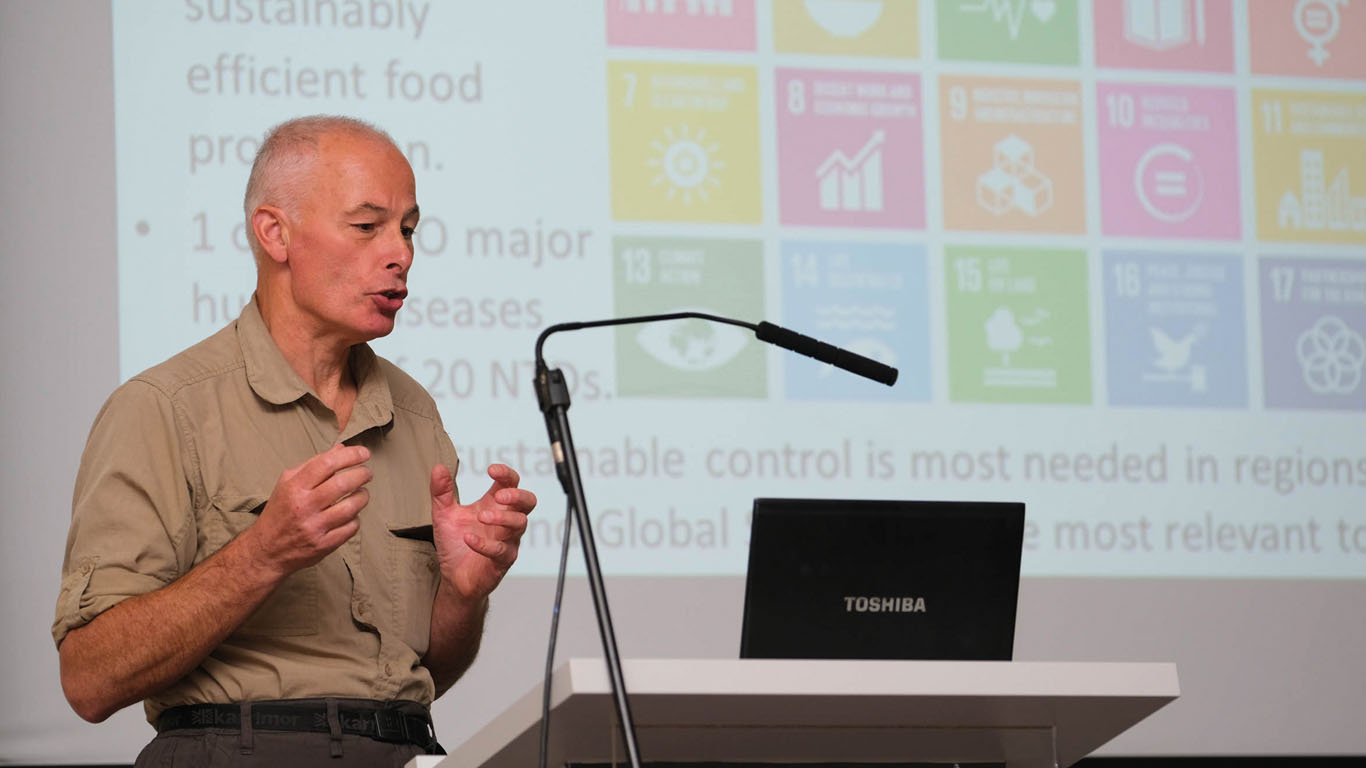
VetNI pivots to keep CPD on track
The coronavirus pandemic has had a devastating effect on the normal programme of CPD and events organised by the two local vet associations, NIVA and AVSPNI and facilitated by VetNI. No face-to-face events have been possible since the NIVA meeting on “Cetaceans and Strandings” on March 10 and both the spring and autumn AVSPNI conferences were cancelled after a straw poll by the organisers showed little appetite for attendance among vets and trade colleagues. All NIVA and AVSPNI CPD will now take place online for the foreseeable future, including the joint Autumn Meeting which will take place on November 18.
‘In terms of our CPD programme, we have 13 online AVSPNI events already in place and another three to six to be added very shortly,’ says Jo Gibson, Secretary General of VetNI. ‘NIVA has also been addressing the potential impact of social isolation on its members by offering a programme of socially-distanced social events. As well as a virtual Village Fete, there are guided walks in the Ardglass area for small groups. Two have already taken place very successfully and a third is planned.
‘AVSPNI is very keen to have some sort of face-to-face event this year and we hope to make this happen if and when we can,’ adds Jo. ‘It might be something entirely social like a Christmas dinner; it all depends on what is allowed but the last thing that any of us wants is to be responsible for a spike in cases.’
A decision is also pending on the annual Omagh Day event in January, which incorporates the AVSPNI AGM. A great line-up of speakers for this gathering has already been identified and the only question remaining is how the event will be delivered.
Profession has ‘done itself proud’
Simon Doherty, the current senior vice-president of the BVA, says that during the initial days of lockdown in Northern Ireland, a lot of local vets were ‘very anxious and upset’:
‘In the very early stages of the outbreak, we wondered how we would continue to deliver our responsibilities in terms of animal health and welfare, but the vets responded very well, thinking about how they could continue with things like TB testing and clinical work in a sensible fashion,’ he said recently. ‘They responded well to some fairly Draconian measures and they are still doing that, they are consulting in car parks, they are using PPE and they are cleaning and disinfecting their premises.’
Simon also paid tribute to staff at AFBI and Queen’s University in Belfast who, he said, had been ‘very quick off the mark’ in volunteering to help the Public Health Agency with its testing regime for Covid-19
‘The profession has done itself proud, this is something we could put a One Health label on,’ he added. ‘This is vets bringing information to the table about how the disease spreads. In general practice, they have done a fantastic job and at the BVA we had to take something which the government devised and translate it so that it was applicable to vets in practice.
‘Did we get it right it right all the time? I’ll leave that for others to judge, but we did try to give practical guidance to vets so that they would know what they should and shouldn’t be doing at different stages in the process.’
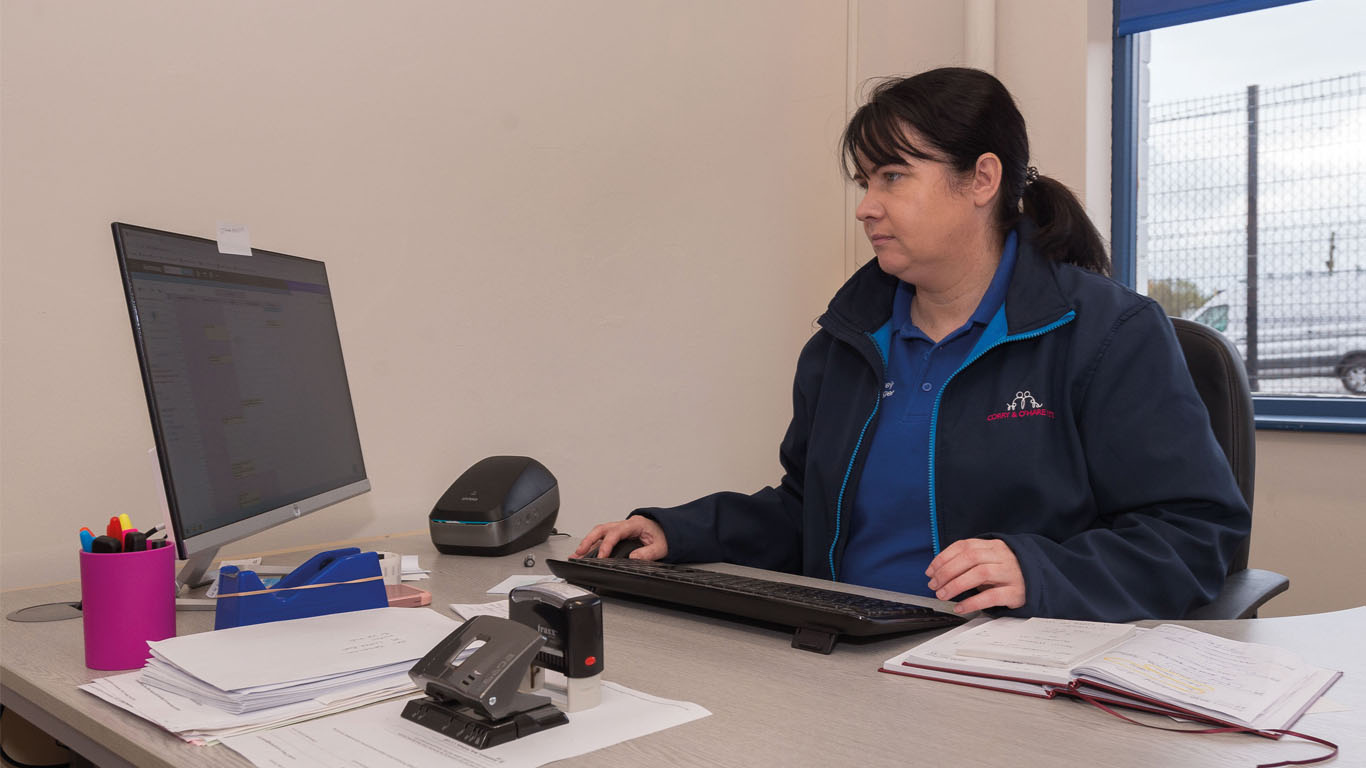
Getting to grips with lockdown
Louise O’Hare from Corry & O’Hare veterinary practice in Omagh says that while business is building well again at the surgery she runs with partner, Kieran Corry, the sudden, early impact of the lockdown on staff levels did cause some difficulty. She recalls the problems caused by trying to triage patients in the car park while dressed in full PPE:
‘It certainly wasn’t ideal’ she told NI Veterinary Today. ‘These were sick animals and sometimes we were trying to have delicate conversations with their owners through a face mask or an open car window.’
Louise says that while business has returned to the independent practice ‘to a degree’, safe social distancing measures are still in operation and staff are continuing to wear PPE:
‘We had a massive influx of new puppies and kittens during lockdown and I think neutering and spaying for them is just about to start in the next month or so. Financially, we did OK during lockdown, enough to justify being open and I think business should continue to return to us as things ease off.’
A slow return to normal for Paul
Paul Crawford is only now beginning to see the start of a return to normal business after the coronavirus lockdown saw his normal routine shattered overnight.
A self-employed veterinary anaesthetist, consultant and researcher, Paul also looks after around 200 sheep at his home in Islandmagee.
Speaking to NIVT recently, however, he revealed that once lockdown took effect in mid-March, he found himself with little to do almost immediately. His research work at UCD stopped and his consultancy work dried up.
‘The phone just wasn’t ringing,’ he says.
That situation began to ease toward the end of June and his research work came back online at the end of August. Paul also helps a neighbour with milking and this continued during lockdown, which brought him a little income.
But he concedes:
‘There isn’t that much in the book for the next couple of months, people seem to be doing one thing at a time because nobody is quite sure what is going to happen. In research, we are still trying to work out what we can and can’t do.’
Paul thinks that before there can be a return to what most people still consider normality, there will either need to be a vaccine or a change in attitudes by the public and a greater acceptance of risk.
Business as usual at AFBI
The Veterinary Sciences Division (VSD) at AFBI has now resumed its full range of services following the Covid-19 lockdown.
Throughout the crisis, at the request of the DAERA, the division also used its diagnostic and molecular expertise to support the health service testing regime for the virus in Northern Ireland. That work is still ongoing at its Stormont site.
Speaking to NI Veterinary Today this month, the newly appointed director of the VSD, Dr Alistair Douglas said:
‘Given the importance of the statutory work undertaken by the division, the majority of testing, emergency response capability as well as provision of advice has continued unabated throughout the Covid-19 pandemic lockdown. This included epizootic disease and food safety emergency response, BSE and Scrapie surveillance, bovine TB diagnosis, animal import testing, brucella surveillance, salmonella surveillance, antimicrobial resistance surveillance, the BVDV eradication scheme, passive surveillance for animal diseases and analytical chemistry testing of foods and feedstuffs.’
Dr Douglas also confirmed that the VSD had resumed its full range of services, including the operation of a triaging system for carcass post-mortems.
‘As director of the VSD, I am delighted at the commitment and resilience of our staff to maintain our vital services throughout the lockdown as well as the assistance they have given to our health service,’ he added.


